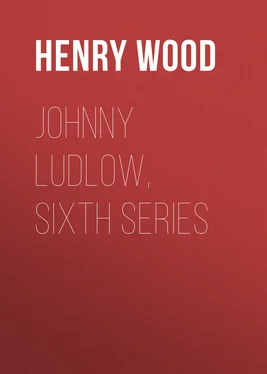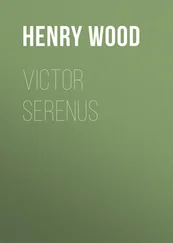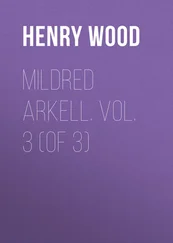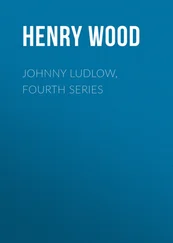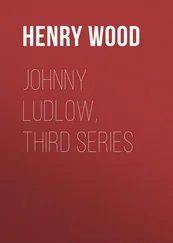Henry Wood - Johnny Ludlow, Sixth Series
Здесь есть возможность читать онлайн «Henry Wood - Johnny Ludlow, Sixth Series» — ознакомительный отрывок электронной книги совершенно бесплатно, а после прочтения отрывка купить полную версию. В некоторых случаях можно слушать аудио, скачать через торрент в формате fb2 и присутствует краткое содержание. Жанр: foreign_prose, literature_19, foreign_antique, на английском языке. Описание произведения, (предисловие) а так же отзывы посетителей доступны на портале библиотеки ЛибКат.
- Название:Johnny Ludlow, Sixth Series
- Автор:
- Жанр:
- Год:неизвестен
- ISBN:нет данных
- Рейтинг книги:5 / 5. Голосов: 1
-
Избранное:Добавить в избранное
- Отзывы:
-
Ваша оценка:
- 100
- 1
- 2
- 3
- 4
- 5
Johnny Ludlow, Sixth Series: краткое содержание, описание и аннотация
Предлагаем к чтению аннотацию, описание, краткое содержание или предисловие (зависит от того, что написал сам автор книги «Johnny Ludlow, Sixth Series»). Если вы не нашли необходимую информацию о книге — напишите в комментариях, мы постараемся отыскать её.
Johnny Ludlow, Sixth Series — читать онлайн ознакомительный отрывок
Ниже представлен текст книги, разбитый по страницам. Система сохранения места последней прочитанной страницы, позволяет с удобством читать онлайн бесплатно книгу «Johnny Ludlow, Sixth Series», без необходимости каждый раз заново искать на чём Вы остановились. Поставьте закладку, и сможете в любой момент перейти на страницу, на которой закончили чтение.
Интервал:
Закладка:
Naturally this occurred to the Mater’s mind when Matilda spoke. “What kind of situation do you wish for?” she asked.
“As housemaid, ma’am, or parlour-maid. I can do my duty well in either.”
“But now, my girl,” spoke up the Squire, turning from the window, “why need you leave Saltwater? You’d never like London after it. This is a clear, fresh, health-giving place, with beautiful sands and music on them all day long; London is nothing but smoke and fogs.”
Matilda shook her head. “I could not stay here, sir.”
“Nonsense, girl. Of course what has happened has happened, and it’s very distressing; and you, of all people, must feel it so: but you will forget it in time. If you don’t care to go back to No. 7 before Mr. and Mrs. Peahern come home–”
“I can never go back to No. 7, sir,” she interrupted, a vehemence that seemed born of terror in her subdued voice. “Never in this world. I would rather die.”
“Stuff and nonsense!” said the Squire, impatiently. “There’s nothing the matter with No. 7. What has happened in it won’t happen again.”
“It is an unlucky house, sir; a haunted house,” she contended with suppressed emotion. “And it’s true that I would rather die outright than go back to live in it; for the terror of being there would slowly kill me. And so, ma’am,” she added quickly to Mrs. Todhetley, evidently wishing to escape the subject, “I should like to go away altogether from Saltwater; and if you can help me to hear of a place in London, I shall be very grateful.”
“I will consider of it, Matilda,” was the answer. And when the girl had left the room the Mater asked us what we thought about recommending her to Miss Deveen. We saw no reason against it—not but that the Squire put the girl down as an idiot on the subject of haunted houses—and Miss Deveen was written to.
The upshot was, that on the next Saturday Matilda bade farewell to Saltwater and departed for Miss Deveen’s, the Squire sarcastically assuring her that that house had no ghosts in it. We should be leaving, ourselves, the following Tuesday.
But, before that day came, it chanced that I saw Owen, the milkman. It was on the Sunday afternoon. I had taken little Joe Blair for a walk across the fields as far as Munpler (their Montpellier-by-Sea, you know), and in returning met Thomas Owen. He wore his black Sunday clothes, and looked a downright fine fellow, as usual. There was something about the man I could not help liking, in spite of the doubt attaching to him.
“So Matilda Valentine is gone, sir,” he observed, after we had exchanged a few sentences.
“Yes, she went yesterday,” I answered, putting my back against the field fence, while young Joe went careering about in chase of a yellow butterfly. “And for my part, I don’t wonder at the girl’s not liking to stay at Saltwater. At least, in Seaboard Terrace.”
“I was told this morning that Mr. and Mrs. Peahern were on their way home,” he continued.
“Most likely they are. They’d naturally want to look into the affair for themselves.”
“And I hope with all my heart they will be able to get some light out of it,” returned Owen, warmly. “I mean to do my best to bring out the mystery, sir; and I sha’n’t rest till it’s done.”
His words were fair, his tone was genuine. If it was indeed himself who had been the chief actor in the tragedy, he carried it off well. I hardly knew what to think. It is true I had taken a bit of a fancy to the man, according to my usual propensity to take a fancy, or the contrary; but I did not know much about him, and not anything of his antecedents. As he spoke to me now, his tone was marked, rather peculiar. It gave me a notion that he wanted to say more.
“Have you any idea that you will be able to trace it out?”
“For my own sake I should like to get the matter cleared up,” he added, not directly answering my question. “People are beginning to turn the cold shoulder my way: one woman asked me to my face yesterday whether I did it. No, I told her, I did not do it, but I’d try and find out who did.”
“You are sure you heard and saw nothing suspicious that night when you rang the bell and could not get in, Owen?”
“Not then, sir; no. I saw no light in the house and heard no noise.”
“You have not any clue to go by, then?”
“Not much, sir, yet. But I can’t help thinking somebody else has.”
“Who is that?”
“Matilda.”
“Matilda!” I repeated, in amazement. “Surely you can’t suspect that she—that she was a party to any deed so cruel and wicked!”
“No, no, sir, I don’t mean that; the young women were too good friends to harm one another: and whatever took place, took place while Matilda was out of the house. But I can’t help fancying that she knows, or suspects, more of the matter than she will say. In short, that she is screening some one.”
To me it seemed most unlikely. “Why do you judge so, Owen?”
“By her manner, sir. Not by much else. But I’ll tell you something that I saw. On the previous Wednesday when I left the afternoon milk at that tall house just beyond Seaboard Terrace, the family lodging there told me to call in the evening for the account, as they were leaving the next day. Accordingly I went; and was kept waiting so long before they paid me that it was all but dark when I came out. Just as I was passing the back door at No. 7, it was suddenly drawn open from the inside, and a man stood in the opening, whispering with one of the girls. She was crying, for I heard her sobs, and he kissed her and came out, and the door was hastily shut. He was an ill-looking man; so far at least as his clothes went; very shabby. His face I did not see, for he pulled his slouching round hat well over his brows as he walked away rapidly, and the black beard he wore covered his mouth and chin.”
“Which of the maids was it?”
“I don’t know, sir. The next day I chaffed them a bit about it, but they both declared that nobody had been there but the watchmaker, Mr. Renninson, who goes every Wednesday to wind up the clocks, and that it must have been him I saw, for he was late that evening. I said no more; it was no business of mine; but the man I saw go out was just about as much like Renninson as he was like me.”
“And do you fancy–”
“Please wait a minute, sir,” he interrupted, “I haven’t finished. Last Sunday evening, upon getting home after service, I found I had left my prayer-book in church. Not wishing to lose it, for it was the one my father always used, I went back for it. However, the church was shut up, so I could not get in. It was a fine evening, and I took a stroll round the churchyard. In the corner of it, near to Mr. Edmund Peahern’s tomb, they had buried poor Jane Cross but two days before—you know the spot, sir. Well, on the flat square of earth that covers her grave, stood Matilda Valentine, the greatest picture of distress you can imagine, tears streaming down her cheeks. She dried her eyes when she saw me, and we came away together. Naturally I fell to talking of Jane Cross and the death. ‘I shall do as much as lies in my power to bring it to light,’ I said to Matilda; ‘or people may go on doubting me to the end. And I think the first step must be to find out who the man was that called in upon you the previous Wednesday night.’ Well, sir, with that, instead of making any answering remark as a Christian would, or a rational being, let us say, Matilda gives a smothered shriek and darts away out of the churchyard. I couldn’t make her out; and all in a minute a conviction flashed over me, though I hardly know why, that she knew who was the author of the calamity, and was screening him; or at any rate that she had her suspicions, if she did not actually know. And I think so still, sir.”
Читать дальшеИнтервал:
Закладка:
Похожие книги на «Johnny Ludlow, Sixth Series»
Представляем Вашему вниманию похожие книги на «Johnny Ludlow, Sixth Series» списком для выбора. Мы отобрали схожую по названию и смыслу литературу в надежде предоставить читателям больше вариантов отыскать новые, интересные, ещё непрочитанные произведения.
Обсуждение, отзывы о книге «Johnny Ludlow, Sixth Series» и просто собственные мнения читателей. Оставьте ваши комментарии, напишите, что Вы думаете о произведении, его смысле или главных героях. Укажите что конкретно понравилось, а что нет, и почему Вы так считаете.
